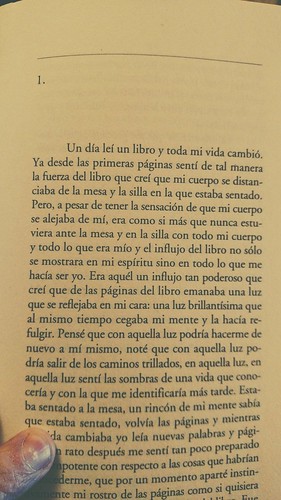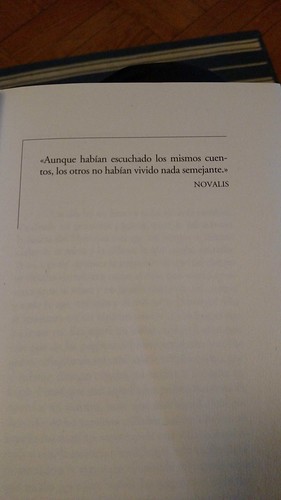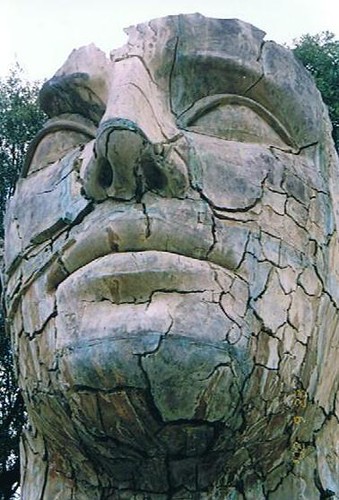|
|
Wednesday, March 7th, 2018
I'm thinking of an old post by Tyler Cowen at Marginal Revolution, which asserts that key to understanding Pamuk's The New Life is understanding Dante and how Dante used themes from Islamic writings in *his* La Vita Nuova. I've started reading Dante as I begin to think about rereading Pamuk. The translator's (Barbara Reynolds') introduction was not of much help in regards to figuring out Islamic sources for the work... I'm figuring one reference is to Majnun and Layla, with Dante casting himself as Majnun, approaching divinity by losing his wits over Beatrice. (The allegory doesn't really work for me, it seems kind of silly... Also Dante has twisted it around by portraying Love as a rational voice that tries to counter his mania. I guess he's attributing the mania to something like infatuation?)
 No, not infatuation, definitely Love -- see e.g.
And when I perceived her, all my senses were overpowered by the great lordship that Love obtained, finding himself so near unto that most gracious being, until nothing but the spirits of sight remained to me. But Love is also portrayed as talking him down...
posted evening of March 7th, 2018: 2 responses
➳ More posts about Orhan Pamuk
|  |
In the book of my memory, after the first pages, which are almost blank, there is a section headed, "And then the murders began."
posted evening of March 7th, 2018: Respond
➳ More posts about Readings
|  |
Thursday, March 8th, 2018
Intriguing... I had a few questions about the translations in "La Vita Nuova", so I ordered a copy of the original to do comparisons. And while searching around abebooks, happened on a copy of "Una Paragrafo Inedito della Vita Nuova, trovato fra carte del sec. XIII" (An unpublished paragraph from La Vita Nuova, found among papers from the 13th C.) by Giovanni Federzoni. Wild! It seems to be untranslated, and I'm finding precious little information about it online. Federzoni does not even have an entry in Italian Wikipedia, though his son Luigi has. The Treccani Dizionario Biografico confirms my hunch that the "unpublished paragraph" is an invention of Federzoni's. How Borgesian!
posted afternoon of March 8th, 2018: Respond
|  |
Saturday, March 10th, 2018
Wondering why the Italian translation of Pamuk's The New Life is titled La Nuova Vita instead of La Vita Nuova... If both are correct Italian it seems weird not to make the reference explicit. Maybe Dante's word order is archaic?
posted morning of March 10th, 2018: Respond
|  |
Thursday, March 15th, 2018
Wow-- if my reactions to the initial few paragraphs of this book are any indication, I'm going to find rereading Pamuk in Spanish revelatory.

 The translation is by Rafael Carpintero, who I reckon is the main translator of Pamuk into Spanish -- I previously ran across his essay on Pamuk as "Un autor en busca de tres traductores", though that was before I could read Spanish, while I was reading My Name is Red. The essay is on page 83-85 of Vasos Comunicantes #36.
posted evening of March 15th, 2018: Respond
|  |
|

Pamuk takes his epigraph to The New Life from the first chapter of Novalis's Heinrich von Ofterdingen -- the passage in full,
Wo eigentlich nur der Fremde herkam? Keiner von uns hat je einen ähnlichen Menschen gesehn; doch weiß ich nicht, warum nur ich von seinen Reden so ergriffen worden bin; die andern haben ja das nämliche gehört, und keinem ist so etwas begegnet.
posted evening of March 15th, 2018: Respond
➳ More posts about Novalis
|  |
Saturday, March 17th, 2018
Once upon a time, not so very long ago and yet not so recently, everything imitated everything else, and thus, if not for aging and death, man would've never been the wiser about the passage of time.
It seems to me like this blog came into its own when I started reading Snow in 2007. While I was reading My Name is Red (directly afterwards), I did a Google search for the lovely quote above concerning aging and death, and happened on Rafael Carpintero's overview of his translation workshop, "Un autor en busca de tres traductores". Alas the article was in Spanish, a language I did not know, at the time, sufficiently to follow the full article.Well in the intervening ten years I've learned Spanish and have had occasional success as a translator... I'm currently starting to read The New Life in Carpintero's Spanish translation, and was led back to "Un autor en busca de tres traductores" -- long story short, I've gotten in touch with Carpintero and have obtained his permission to translate the article!
posted morning of March 17th, 2018: 1 response
➳ More posts about My Name is Red
|  |
Saturday, March 24th, 2018
I've been reading Pamuk's The New Life, four chapters in now; here are a couple of headings.
- Wonder about class. Osman is an engineering student; does this mark his family (in 1990s Turkey) as wealthy? or at least as whatever the 1990s Turkey equivalent of upper-middle-class is? I'm wondering how he has the wherewithal to disappear for weeks of riding busses around Turkey, presumably eating and staying in hotels... In Chapter 4 he takes some money from his dead seatmate after the bus crashes, but this is after a long period in which money has not been mentioned. (Possibly this is the wrong approach, or not a useful approach, to an allegorical story.)
- The fascination with crashes and death is noteworthy. Wondering if it would be worth going back to Weisel's The Accident (which I read as a young man and have practically no memory of). This is a point of identification for me, my "new life" began after surviving an accident as a 13-year-old.
- The fascination with death is a point of comparison to Dante. Janan is comparable in some ways to Beatrice but her role is much different.
posted morning of March 24th, 2018: Respond
|  |
Sunday, April 8th, 2018
I am now starting chapter 9 in my reread of The New Life-- if memory (aided by blog) serves, this is as far as I ever got the first time I read it. In the past month or two I've read the first eight chapters in Spanish and then in English. Going forward, I'll be reading each chapter in one language and then the other. (Not really trying to compare the two translations here, I'm just looking to (a) improve my Spanish and (b) get a deeper understanding of the text.)
It is tempting to try to imagine myself in the shoes of the narrator -- as I am reading the book, I'm trying to identify the book I'm reading with the unnamed book that the narrator is reading, so that it will take me to a new level of perception (as it does I, the narrator). But I-the-reader am having some trouble figuring out what's the allure of reading such a book, joining such a peculiar society as those-who-have-read-and-understood "the book", it seems more an onerous burden than a blessing. But as I say I'm only less than halfway through currently. Keep waiting for Pamuk to tip his hat! :) Osman and Janan are meeting Dr. Fine/Delicado, author (IIUC) of the book (not super crazy about either translation, I guess the man's name is a Turkish word with that meaning and it's going to be important somehow to understanding the text, to get that pun) -- maybe they're (we're) going to get access to the supernatural reality of the book (the book).
posted morning of April 8th, 2018: 3 responses
➳ More posts about Identification
|  |
|
Two difficult points in reading The New Life -- I am trying to identify with a narrator who is (a) running away to join a cult, or something with distinct parallels to a cult, and is (b) harrassing Janan, who has repeatedly told him to keep his hands off her.
posted afternoon of April 8th, 2018: Respond
| |
|
Drop me a line! or, sign my Guestbook.
•
Check out Ellen's writing at Patch.com.
| |

